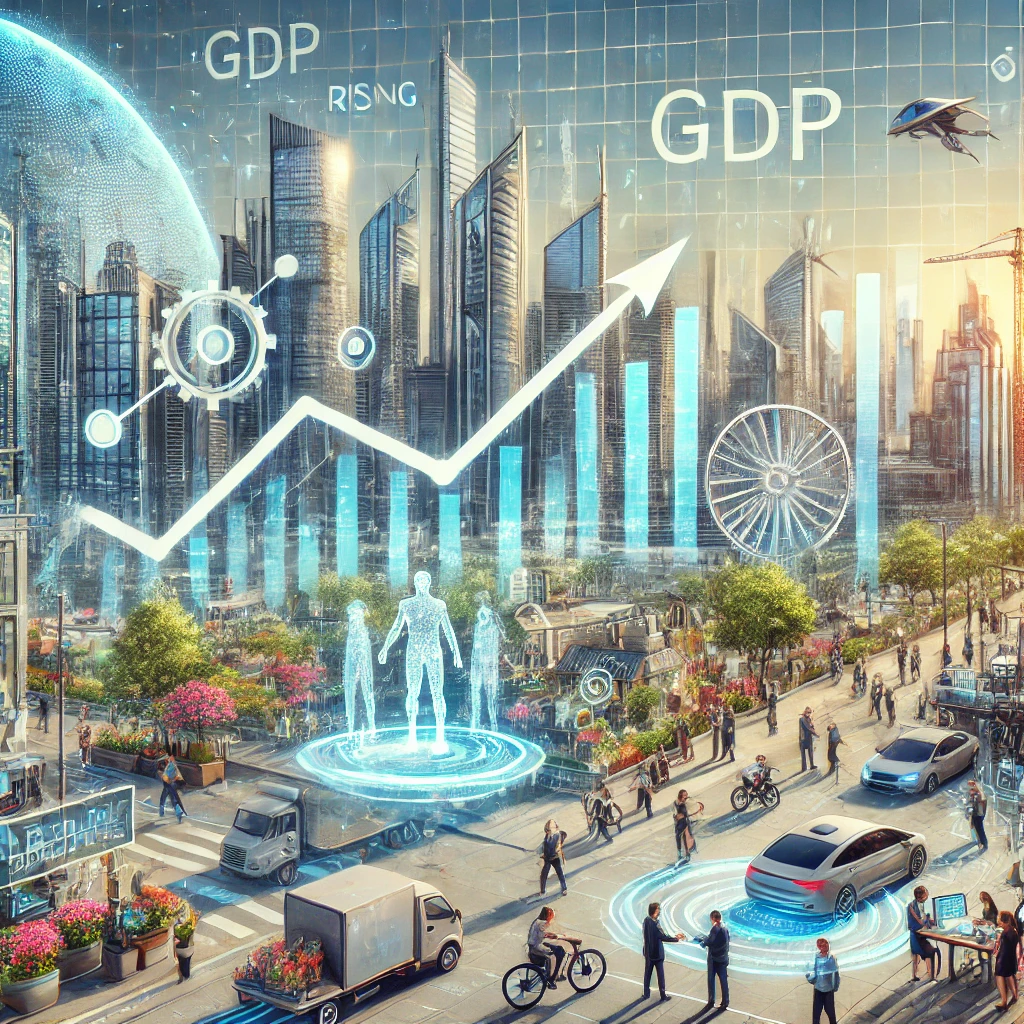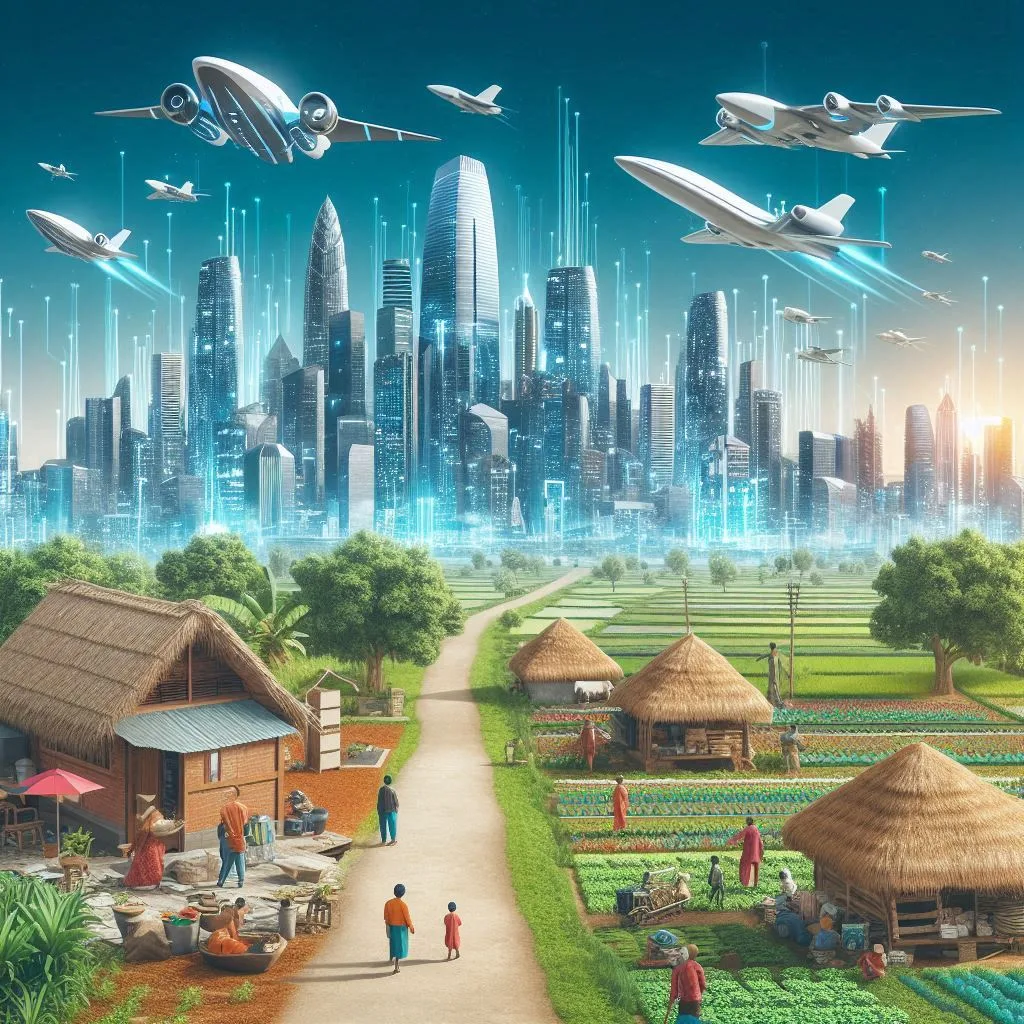Intro

This is Taiwan, a heavily disputed territory off the coast of mainland China, home to 23.5 million people and some of the most important industrial centers in the world. Don’t worry, this is not yet another discussion about Chinese and Taiwanese hostilities and how they could catalyze a major war between global superpowers. Instead, it’s about a trend that, while not as attention-grabbing, could be just as devastating for most of the world. Today, Taiwan is Asia’s second-richest major economy, following just behind Japan, which is poised to overtake in the next few years if current trends continue. It is an advanced economy, having made the transition from a poor agrarian makeshift settlement to a military dictatorship that only officially ended 35 years ago. Taiwan’s story of transitioning from an agrarian economy to a low-cost manufacturing center and then finally becoming an advanced hub of world-leading industries is not unique. Other countries in the region, such as South Korea, Singapore, Japan, and even certain regions within mainland China, followed similar paths in the last decades of the 20th century to become what economists broadly classify as advanced or developed economies. Taiwan is particularly interesting because it was one of the last major economies to make that leap.
Today, more and more fast-growing economies around the world are struggling to transition from developing to advanced economies. Some examples, like Brazil, arguably became the first country to regress from being an advanced economy back to a developing one. Outside unique situations like this, the general trend is that fewer countries are successfully making the final step to becoming fully advanced economies, often finding themselves stuck in a cycle of endless problems at the developing stage. Already this year, Sri Lanka, Pakistan, and even China have been grappling with economic challenges that hinder their progress. While there are countless reasons why rich countries are rich and poor countries are poor, one of the biggest is an economic process known as brain drain. This phenomenon has the potential to solidify countries’ positions in the global economy, making it nearly impossible for others to join the ranks of the 30 or so existing advanced economies.
So, what is brain drain, and why is it worsening? How is it making rich countries richer and poor countries poorer? And finally, is there any way for developing countries to stop this from happening? This episode of Economics Explained will explore these questions.
Course Careers

Brought to you by Course Careers. As we’re about to find out in this video, universities have become very expensive, but they are also not necessary for many high-paying careers that prioritize practical and interpersonal skills over formal education. Course Careers bridges this gap by offering affordable online courses in technical industries, teaching you everything you need to know to do the job—rather than just enough to pass a final exam.
Course Careers also partners with various companies to ensure their courses are relevant and that their students are in demand from the moment they complete their program. Their program already boasts hundreds of success stories, like Josh, who completed a course in technology sales while working part-time at Target. He is now earning $70,000 a year and is on track to be promoted to a six-figure role. Or Kyle, a former manufacturing plant worker who took the tech sales course two years ago and is now a regional sales manager making $150,000 a year.
Often, the only thing stopping people from upskilling into high-income, in-demand roles is the significant cost and commitment required to earn a degree. As we’ll explore further in this video, the expense and competitiveness of traditional education have become overwhelming. Course Careers simplifies this process. To check out their other success stories and get $50 off the full course, visit coursecareers.com/economics-explained and use the discount code EE50. The link and code are on-screen now and in the video description below.
Advanced economies

There is no specific definition of what an advanced economy is or is not. Economists generally agree that it is a country with a GDP per capita of at least $20,000 per year at a minimum, advanced highly technical industries, a well-functioning and fairly regulated market system, and a good score on the Human Development Index. A combination of all these factors is important, which is why institutions like the IMF classify Spain as an advanced economy but not Brunei, even though Brunei has a GDP per capita 50% higher than Spain’s.
The IMF is one of the few organizations that specifically defines individual countries by labeling them as advanced, emerging, or low-income, though finding these classifications often requires digging. To most economists, an advanced economy is one of those things where “you know it when you see it.” This nuance is important as we try to understand what prevents other countries from achieving this somewhat ill-defined status. Brain drain, for instance, is the process of highly educated and productive individuals leaving an economy, which can be a significant barrier to advancement.
What is brain drain?

Leaving their home country to achieve better opportunities in another country can be motivated by higher-paying jobs, a better lifestyle, or escaping violence, corruption, or persecution. Overwhelmingly, the most productive members of economies worldwide are moving from developing economies to advanced economies. While this is a generalization, advanced economies are typically more attractive places to live, offering lower rates of violence, higher-paying jobs, and better overall living conditions. For instance, an engineer in India earns an average salary of 800,000 rupees (about USD 10,000). While that is a decent salary in India, if they were to leverage their expertise and qualify as an engineer in the United States, they could earn ten times that amount or more. Furthermore, a country like the USA, despite its problems, is generally less crowded and polluted than many parts of India. When such an opportunity arises, many individuals from India and other countries take it.
This migration, however, significantly harms the countries they leave behind. Developing countries lose their most productive workers—individuals who would pay the most taxes, produce the most value and have the highest potential to drive innovation and wealth creation. These workers are lost just as they transition from being an economic burden to becoming contributors. While it may sound harsh, children and students are economic burdens because they require more resources than they contribute until they enter the workforce. After their working years, they may again become an economic burden in old age.
Despite this, the investment in raising and educating children is generally worthwhile for governments or families. In undeveloped economies, children often go on to care for their parents when they can no longer work. In developing and advanced economies, these children produce significantly more value during their working lives than what governments or families initially invest in them. The distinction, however, lies in who bears the costs and who reaps the benefits.
In undeveloped countries with little to no government welfare or support systems, families bear the costs of raising children, which is often worth it because children work alongside their parents on farms or in family businesses. Having children in these countries is also relatively inexpensive, effectively creating a low-cost workforce and a built-in retirement plan.
Demographics

Other cultural factors contribute to this dynamic. In most low-income economies, populations tend to be younger, with high birth rates driven by the cost-benefit dynamics of having children. However, in high-income countries, the equation is reversed. Raising children is extremely expensive and often requires parents to leave the workforce for extended periods. Additionally, laws in these countries typically prohibit child labor, even in family businesses, and there is no expectation for children to financially support their parents in old age, as alternative systems are already in place to handle this responsibility.
As a result, nearly every major and developing economy today is grappling with demographic issues. People are not having enough children to sustain the cycle of younger generations supporting the elderly. If a significant portion of the population becomes too old to work, it places a strain on the shrinking younger workforce. This strain may manifest directly, as more workers are required to care for the elderly, or indirectly, through higher taxes to fund systems that support aging populations.
This demographic challenge is already evident. Labor force participation rates in many countries are declining as individuals leave the workforce earlier than anticipated. These figures don’t account for the growing population of retirees who will require even more care. Low-income and developing countries will face this issue most acutely, as a larger proportion of their economies rely on physical labor. Unlike service-based jobs, physical labor roles cannot easily be performed by those who are too old or frail.
The benefit to rich countries

Advanced economies have another advantage that helps them stay rich, while low-income and developing economies only experience the downsides of brain drain. This process worsens their aging population problems, but rich countries benefit by being the destinations that attract these skilled workers—essentially becoming the “sink” into which brains drain (an admittedly unpleasant metaphor, but you get the idea). Wealthy countries, as desirable places to live and work, attract the best young skilled workers who seek a better life.
Most advanced nations can control how many skilled workers enter their economy simply by adjusting the number of skilled worker visas they issue. After the global pandemic, with record unemployment and declining labor force participation, many governments are now opening their borders to record numbers of skilled migrants. These workers not only address the challenges of aging populations but also serve as a form of economic stimulus. Migrants moving to a new country need to purchase a range of goods and services to establish themselves, including cars, furniture, phones, internet plans, and housing. Whether renting or buying, skilled migrants bring money from their home countries, which stimulates the host economy.
This phenomenon is particularly evident in education. One of the primary pathways for people moving from low-income or developing economies to advanced economies is through student visa programs. Individuals who complete a university degree in a developed country are more likely to…
Education

Likely to be successful if they apply for a working visa after graduating, international students benefit from host countries recognizing their degrees and being confident in their language skills and productivity, demonstrated by passing university exams and assignments. University degrees in advanced economies are significantly more expensive for international students due to the lack of government pricing controls and high demand, making them a lucrative source of revenue for these educational institutions.
This situation is not without challenges. In countries like Australia, for example, education is one of the largest exports, generating more income from international university fees than from petroleum or natural gas. The profitability of this sector has led to trends where universities ensure that international students “get what they pay for”—a degree—sometimes at the expense of academic integrity. Scandals have arisen where professors were pressured to pass underperforming international students to maintain the university’s reputation and attract more such students in the future. This issue is not unique to Australia; universities worldwide face the challenge of balancing the financial benefits of international student enrollment with maintaining academic standards.
International students often take spots that local students might have wanted, creating competition between locals and students from abroad. While no one is inherently “owed” a place in a university, the problem arises when students with inadequate language skills or questionable academic performance are admitted simply because they pay higher fees. This not only undermines the integrity of admissions processes but also disadvantages qualified local applicants.
From a macroeconomic perspective, however, this process has significant benefits. Host countries receive direct financial stimulus from international students, funding research institutions and boosting local economies as students spend on housing, food, and entertainment. Many student visa programs allow part-time work, and while this helps students cover expenses, much of the funding for their studies and living costs often comes from family or personal savings back home. Furthermore, the part-time jobs these students take are typically in less desirable sectors, filling roles that might otherwise remain vacant.
Upon graduation, if international students enter the workforce in their host country, they start at the beginning of their careers, maximizing their contributions and tax payments without having been a financial burden during their childhood. This system ensures advanced economies attract the brightest talents, fueling innovation and maintaining competitive, advanced industries. In contrast, developing economies lose their most promising innovators, further hindering their ability to compete globally.
Solutions

This is a problem already stifling the growth of dozens of countries around the world. How can economists stop it? The simple fact is that advanced economies are almost always more desirable places to live and work than developing economies. This is not only because they offer higher incomes but also because they typically have lower levels of corruption, crime, and pollution while providing better access to healthcare, education, and other public utilities. Of course, this is a generalization, and some developing economies may outperform certain advanced economies in these areas. However, the trend generally holds.
The first step to slowing brain drain is improving living conditions at home. People are less likely to move abroad if their home country offers a good quality of life. This means reducing pollution, crime, and corruption while improving public services—a challenging but essential task for any developing nation aiming to become an advanced economy. It highlights the importance of focusing on people even in macroeconomics, where attention often centers on industries and trade deals.
Another more direct approach is for countries to invest heavily in industries that have the potential to advance their economies. South Korea, Japan, and Taiwan—some of the most successful economies in the past five decades—all began with strong government programs aimed at building world-leading technical industries. These are distinct from low-cost manufacturing in places like China or India or service-based economies like the Philippines. Instead, they focus on industries driven by innovation rather than cost. Japan remains a leader in designing and manufacturing advanced electronics. South Korea boasts globally competitive companies and Taiwan’s industries are vital to the global economy.
Building such industries often requires significant investment, including paying skilled professionals to move to less desirable countries and provide their expertise long enough to get these industries established. However, this approach is risky, with no guarantees of success. It could also divert government funds from public services and efforts to combat crime, corruption, and pollution—issues that initially drive people to seek opportunities.